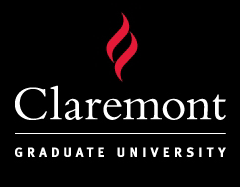Abstract
The focus of my study is to demonstrate that major variants in the text of Early Christian Literature were purposely inserted into the text in light of theological controversies by scribes who represented a certain perspective on behalf of an Early Christian community. The text on which this paper is focused is the ending of the Gospel of Mark and the major textual variant known as the “Freer Logion.” I will argue that the Freer Logion was purposely inserted to conclude themes that were left open by the author of Mark and not addressed by the scribe who inserted the Longer Ending of Mark.1
DOI
10.5642/lux.201301.08
Recommended Citation
Clark, Seth
(2013)
"Unbelief, Lawlessness, and Satan: Viewing the Freer Logion as a Scribal Response to Open- Ended Eschatological Themes in Mark,"
LUX: A Journal of Transdisciplinary Writing and Research from Claremont Graduate University:
Vol. 2:
Iss.
1, Article 8.
Available at:
https://scholarship.claremont.edu/lux/vol2/iss1/8
